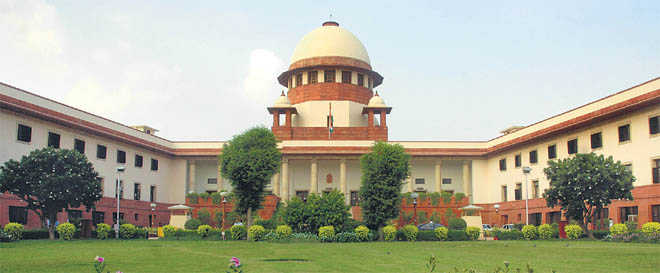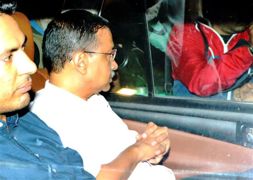
Vivek Katju
Former Secretary, Ministry of External Affairs
IT is only natural that the nation has turned to those learned in the law to understand the implications of the serious charges levelled against the Chief Justice of India by four of his seniormost colleagues on the Bench. The accusations do not impact on the Supreme Court alone; they affect the health of the Republic itself. For, if the apex institution of the judicial branch gets gravely contaminated, then can the Republic itself avoid the infection spreading through its entire body, enfeebling it; and, consequently, leaving it open to unknown depredations?
At such times, democracy demands of all citizens to ponder deeply on the developments taking place and communicate their thoughts, for the future of the Republic ultimately lies in the good sense of an alert and active citizenry. It is in that spirit that this writer who spent his professional life in diplomacy, including focussing on Pakistan, offers some thoughts. There is another reason which springs from the neighbouring country's experience. Democracy failed in that country not only when its politicians let it down but also when its superior judiciary failed its people and accepted the jack-boot of the military. It propounded the noxious doctrine of necessity and sanctified military coups. There is simply no way that can happen in India, but there are other ways in which the judicial organ can let the people down.
Many eminent lawyers and some public figures have lamented, indeed have been severely critical of the four judges for going public with their accusations against the CJI. They have stressed that such matters should get resolved within the judicial family; that dirty linen should not be washed in public. Clearly, the thought behind such argument is that if these issues are made widely known, the people would lose faith in the courts and that would do irreparable and lasting damage to the nation.
The people's faith in an organ of state or an institution cannot rest or be preserved on the basis of ignorance. Besides, in the absence of authentic information, rumours, innuendoes, and downright falsehoods begin to spread. It is impossible to keep differences as in this matter behind a veil of secrecy for long. Hence, it is always prudent to rely on the good sense of the people to take a view on the basis of facts. There are of course matters which concern the security of the state and popular well-being which require to be kept secret. Their revelation imperils the national interest. In the case of the courts, judgments till they are delivered would naturally fall in that category.
The process of the constitution of Benches to adjudicate matters has to be transparent and based on norms even as chief justices have to control that process. A prime minister and chief ministers can have full discretion in the allotment of portfolios to their ministerial colleagues for these are essentially political acts. The constitution of Benches is an administrative act and the people have the right to know the basis on which it is done. This will add to their trust in the courts and cannot be considered as an abridgement of a chief justice's administrative control or a lack of trust in him.
As grave charges have been made regarding the basis on which Benches have been constituted, it is necessary, that the rationale on which the Chief Justice did so are made known. Clearly, the four judges feel that ulterior motives have been at play. The people have the right to make up their minds after knowing the Chief Justice's thought process. A question mark cannot be left hanging. That would do damage.
The government has left the matter to be resolved by the judiciary itself. This may be wise and it is to be hoped that it would find the wisdom to do so. However, it would simply not be enough for this issue to be resolved behind closed doors and then the public be sought to be assured that all is well and matters can return to status quo ante. Masonic lodges and secret societies can work in the dark, not organs of state. This is especially so of the judiciary which can only inspire popular confidence through demonstrably transparent and norm-based functioning.
The issues raised by the action of the four judges has a direct bearing on the superior judiciary's assertion that its independence can only be guaranteed if it has an almost exclusive, certainly the final say, in the appointment of judges. To achieve this objective, it has resorted to innovative interpretations of the Constitution and has rejected the will of Parliament to change the system of judicial appointments. Indeed, the collegium system has been entirely a device of its making and it has refused to give it up. For more than two decades, all appointments have been made under this system. It is therefore supremely ironic that all the members of the collegium are today accusing its chief of precisely what it was meant to avoid.
The fact is that making appointments are exercises of 'political' power. And such exercises unless circumscribed by strict rules and norms inevitably lead to politicking. There is little doubt that that has happened and that too without the checks that can be provided through another organ of state. It is true that in the 1970s and the 1980s, the executive began to trample on the constitutional scheme regarding appointments in the superior judiciary. The Supreme Court responded through almost completely abridging the executive's power in this area. Was this wise? The events of last week indicate a negative answer.
In this context, it would be appropriate to recall what Chief Justice Hidayatullah records in his autobiography of the time he headed the Madhya Pradesh High Court. He notes that he faced difficulties with Chief Minister Ravi Shankar Shukla who recommended unworthy lawyers to become high court judges but, “When Dr Katju became Chief Minister, the whole thing changed. His remark to me was: ‘Chief Justice, these are your courts and you know best. If I know or hear anything about a candidate recommended by you, I shall caution you. Otherwise, your choice will be my choice also.’” No collegiums or Memorandums of Procedure were needed to appoint deserving persons as judges.
Ultimately, it is people who manage systems and lead institutions and organs of state. In their integrity and commitment lie the welfare of the Republic. If they are found wanting, it is necessary that they be exposed. Management of issues behind closed doors cannot achieve that objective.
(The writer belongs to a family of lawyers and judges. He has ‘breathed law’ since infancy and is not unfamiliar with the nous and and nuance of judicial system)



























